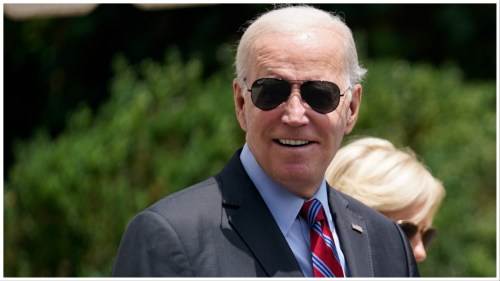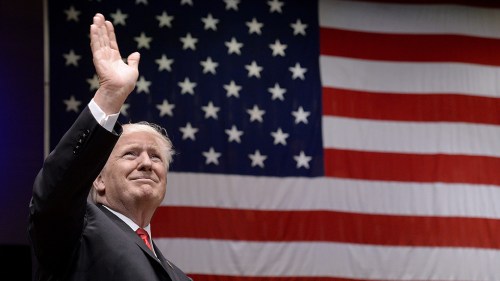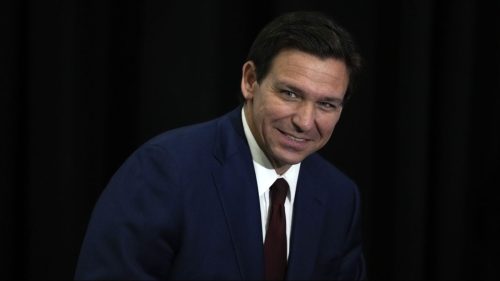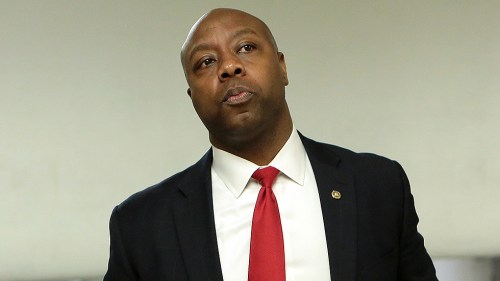Before taking on Trump, Biden must confront skepticism among Black voters

Can President Biden change the minds of Republicans who voted for President Trump in 2020?
Don’t bet on it.
Polls show those voters are locked in, giving Trump a big lead before the first vote is cast in the Republican primaries. And even a jury finding Trump liable for sexual assault apparently hasn’t changed their minds.
That means going into the 2024 president election, Biden’s most important fight is with Democrats.
He needs them to get past any reservations they have about him and show up at the polls in big numbers.
Here’s the problem:
Nate Cohn, the New York Times’s chief political analyst, wrote last week that current polling among Black and Hispanic voters shows “Biden is far behind usual Democratic benchmarks.”
And we know that in 2022 the percentage of Black voters, according to the Times, “sank to its lowest level since 2006.”
Similarly, Census Bureau data released last week show Black voter turnout in last year’s midterms fell nearly 10 percentage points, from 52 percent to 42 percent, according to a Washington Post analysis.
These numbers fit with an overall big drop in midterm turnout by voters under age 30. The youth vote fell 6.5 percentage points, from 32 percent to 26 percent, according to the Census data. That youthful age group has the highest percentage of Blacks, Latinos and other racial minorities.
“The biggest story in my mind out of 2022 is abysmally low Black turnout,” James Carville, the Democrat who led President Clinton’s winning 1992 campaign, said in an April interview. “It’s a problem with younger Black voters.”
Why are young Black voters – President Biden’s audience at the Howard University commencement this past weekend – lacking passion to support Democrats?
How do you explain their indifference in the midterms when Democrats were running against a party that’s actively working to suppress voter turnout on college campuses and big cities?
Part of their cynicism about the prospects for real change is the result of growing up in a time when President Obama promised “hope and change” before the arrival of Trump.
Those graduates lived through two terms of Obama, a celebrated Black politician. He made promises and remains an icon in Black America.
But after eight years of Obama in office, Black America still faced ongoing incidents of police brutality and continued struggling with underachieving schools for Black children and high rates of poverty.
When Biden spoke to young Black people at Howard, he was addressing young people with little reason to think any politician, be it Obama or Biden, will rescue them, their parents or their neighborhoods.
As a result, Black voters’ skepticism remains high for any politician, including Biden, who talks about success.
Yes, Biden can talk about his success in passing a law that will invest in better infrastructure for America, including in Black neighborhoods.
Yes, he can talk about passing laws to lower the cost of prescription drugs. He can talk about pushing to forgive student loans.
But that talk may seem abstract to many young Black voters, according to Terrance Woodbury, whose HIT strategies, a polling firm, focuses on Black voters.
In an August 2022 poll, 27 percent of Black voters told Woodbury’s pollsters their lives had gotten better since Biden took office. But 52 percent said life was the same, and 21 percent said they were doing worse.
Overall, Black voters in Woodbury’s polls overwhelmingly approve of Biden, but there is a difference by age. He found “88 percent of black voters 50 and over approve compared to 77 percent of black voters under 50.”
That leads Woodbury to conclude that Biden can count on winning older Black voters. But he is concerned that lower enthusiasm among young Black voters will lead to overall lower turnout and leave Biden vulnerable in key states.
“Will enough of them splinter?” Woodbury told me. “Will enough of them not be excited? [Biden] only won by about 30,000 votes in Michigan, 12,000 in Georgia. Yes, I do believe that Republicans can splinter [the Black] coalition that much.”
Overall, Biden won 92 percent of the Black vote in 2020, according to Pew Research, which helped him to win in battleground states, such as Pennsylvania, Michigan and Georgia.
A recent Washington Post poll found his approval at 42 percent “among non-White adults,” and only 26 percent among voters under the age of 30.
Low poll numbers from both groups are creating concern that the coalition that elected Biden is becoming fragmented, in the opinion of Donna Brazile, the former Democratic Party chair. She expressed her alarm during an appearance on ABC’s “This Week.” The fracturing is most evident among Black voters.
The good news for Democrats is that the election is a year and a half away.
Voters are in a sour mood about all politicians. But Black voters rank Biden and Kamala Harris, the nation’s first black vice president, more highly than Trump.
With Trump telling a CNN town hall last week that he supports the people involved in the violent Jan. 6, 2021, riot – to which a rioter brought a Confederate flag – the odds are that even the most skeptical Black voters will recognize they have reason to turn out and vote in 2024.
Juan Williams is an author, and a political analyst for Fox News Channel.
Copyright 2023 Nexstar Media Inc. All rights reserved. This material may not be published, broadcast, rewritten, or redistributed. Regular the hill posts














